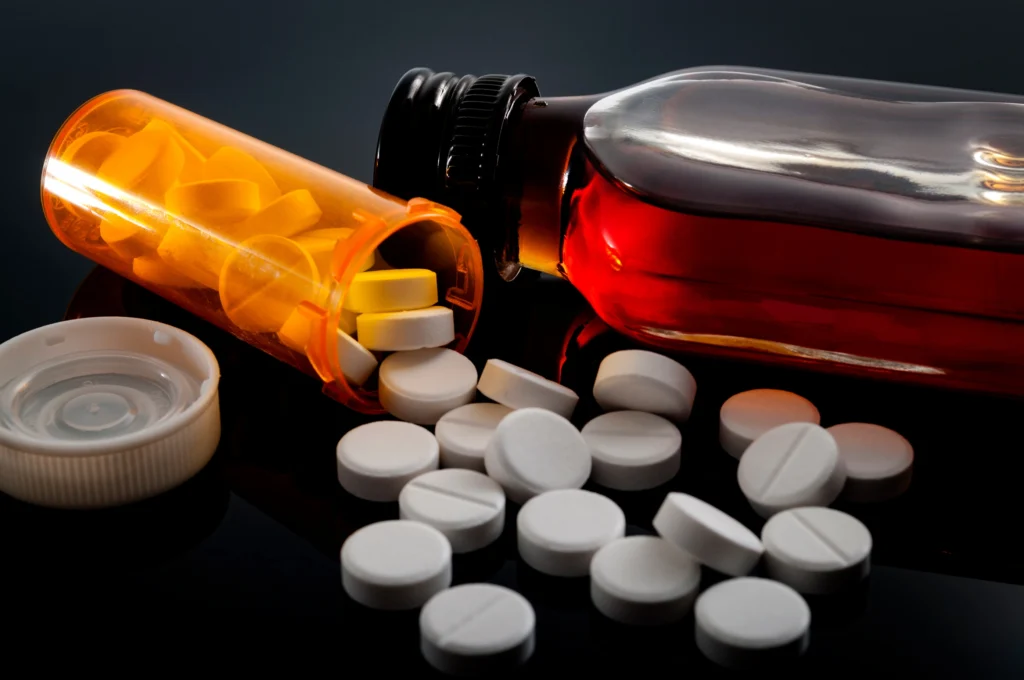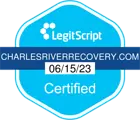Alcohol and Opioids Are a Bad Mix
Mixing opioids and alcohol is a dangerous combination that can have severe consequences. While each substance poses risks on its own, the effects of combining them can be exponentially more harmful. This article explores the dangers of mixing opioids and alcohol, including the potential for overdose, impaired judgment, and long-term health effects. Understanding these risks is crucial for anyone who may be prescribed opioids or consume alcohol, as well as for those who know someone at risk.
Why People Mix Opioids and Alcohol
Sometimes, people with a substance use disorder involving opioids will knowingly consume alcohol because they believe it can increase the intoxication effects. It is also possible to inadvertently consume opioids and alcohol together if you are unaware that someone has put opioids or other intoxicating substances into an alcoholic beverage. Someone taking opioids might also forget when they took their last prescription and accidentally consume alcohol too close to a dose of prescription pain medication.
Some examples of opiate medications and drugs that should not be combined with alcohol include:
- Oxycontin
- Vicodin
- Percocet
- Tylenol 3 with codeine
- Morphine (Kadian or Avinza)
- Fentanyl
- Tramadol
- Buprenorphine (Belbuca, Probuphine, and Buprenex)
- Methadone (Meth)
- Heroin
These are not the only medications that should not be combined with alcohol, and you should consult with your physician about alcohol use and any medication you are taking.
Effects of Opioids and Alcohol
Mixing alcohol and any medication can be unpredictable. Some combinations have known adverse reactions, but the reaction and its severity also depend on several factors. The first is age-related changes to the body. These changes cause the body to react differently to both alcohol and drugs. A second factor is that some medications alter the metabolism, and this can affect how the body absorbs and processes alcohol. A third factor is individual differences in how a person’s body reacts to medications and alcohol.
These factors further complicate the ability to predict what will happen when you combine opiates and alcohol. It is possible for a person to have combined these two substances with limited side effects in the past and then have an unexpected reaction the next time. For those who have been addicted to either opiates or alcohol for some time, the results can become fatal quickly. That is why it is important to let your physician know that you consume alcohol if they are going to prescribe medication. For those who have an addiction to either substance, it is important to seek appropriate treatment.
Effects of Opioids
Aside from the euphoria and pain-relieving effects, opioids also have several unwanted side effects on the body. These include:
- Sleepiness
- Nausea
- Vomiting
- Constipation
- Slowed breathing
Slowed breathing when using opioids can become severe enough to cause a condition known as hypoxia. This condition means potentially dangerous low oxygen levels in the body.
Effects of Alcohol
Alcohol also has several side effects that include:
- Nausea
- Vomiting
- Diarrhea
- Headaches
- Dehydration
Drinking too much alcohol can result in an alcohol overdose. The signs of alcohol overdose include:
- Difficulty staying conscious
- Vomiting
- Seizures
- Difficulty breathing
- Slow heart rate
- Clammy skin
- Low body response
- Dull reflexes
Alcohol and Opioid Interactions
The problem with taking alcohol and opioids together is that this can intensify the side effects caused when taken alone. The result can mean a lowered heart rate and extreme difficulty breathing. This combination can become fatal quickly. There is also a possibility of brain damage.
Increased Risk of Overdose
Drinking too much alcohol too quickly can cause an alcohol overdose, but this threshold is lowered when you combine it with opioids. Any combination of alcohol and opioids is potentially dangerous. Both suppress respiratory functions. When you combine these two substances, there is a greater potential of adversely affecting vital bodily functions and ending up in a serious, life-threatening emergency.
It is important to be able to recognize the signs of an overdose whether by alcohol or opioids alone or in combination. Anytime a person loses consciousness while consuming these substances indicates a serious medical emergency and warrants seeking help immediately. The person might have slowed breathing, pinpoint pupils, or might be pale or blue. They might also have a weak pulse or slowed heart rate. Any of these signs indicate a need to call emergency medical services.
Increased Risk of Suicide
The National Institute on Alcohol Abuse and Alcoholism also reports an association between suicide and alcohol. Opioids increase this risk substantially. Alcohol and opioid consumption are often taken as a way to ease depression. The caveat is that both increase depression in the long term. Taking alcohol lowers inhibitions and increases impulsivity, which increases the likelihood that someone will carry out suicidal thinking. Taking opioids and alcohol makes it more likely that a person will act.
Increased Risk of Falls and Accidents
The NIAAA also found that taking alcohol and opioids together increases your risk of falling or getting into a fatal car crash. The sedative effects of opioids and alcohol on the system increase your chances of falling or becoming involved in a serious car accident.
You have an increased risk of these harmful effects when taking either opioids or alcohol alone, but the risk is increased when you combine them. Even in small amounts, the effects of these substances and alcohol can increase your risks for these potential risks. It is best to avoid taking opioids and alcohol together, even if it seems like they are in small enough amounts.
How It Works
From a physiological standpoint, the combination of alcohol and opioids has a synergistic, rather than an additive, effect. Alcohol and opioids act on different receptor systems. Opioids react on the mu-opioid receptors. Alcohol acts on the GABA-A and NMDA receptors. These actions have the effect of suppressing the respiratory system, even though they do it using different mechanisms. This means the respiratory system gets double the suppressive action, which means that the breathing will slow even more, which increases the risk of developing and severity of hypoxia.
What to Do If Someone Is Experiencing a Severe Reaction
If you or a loved one has mixed alcohol and opioids and is experiencing any symptoms, it is best to seek emergency medical attention immediately. Conditions can deteriorate quickly, and what might seem like a mild reaction at first can quickly become life-threatening. Once the initial medical emergency is over, the person will likely be offered help and resources to help them overcome associated substance use disorders for both alcohol and opioid use.
It is never a good idea to assume that the person will be better with time. Combining alcohol and any medication is never a good idea, and the symptoms of a severe reaction can come on quickly. A quick response in seeking medical assistance can help save a life in this case.
Co-Occurrence of Opioid Use Disorder and Alcohol Use Disorder
You do not have to be a longtime, established user of alcohol or opioids to develop a severe reaction to this combination. Even those who are trying either of them for the first time can experience a severe reaction. Alcohol and opioid use often co-occur, and this increases the potential for an adverse reaction.
The potential for a serious reaction between alcohol and opioids is especially true for those with
chronic pain. They will often try to enhance the pain reduction effects by taking alcohol with prescribed pain medications, and this can lead to a medical emergency. Those who have become addicted to prescription painkillers are at as much risk as those who take non-prescription opioids. The National Institutes of Health studies have also found that having opioid use disorder also increases the chances of having alcohol use disorder.
It Is Time to Get Help
Opioid abuse and alcohol abuse are both reasons to seek medical help, but taking them together is never a good combination. Regardless of whether you or a loved one has an addiction to opioids, alcohol, or both, it is time to seek help. Charles River Recovery is a Massachusetts drug and alcohol treatment center that can help. We have treatment programs to meet many needs and are committed to helping you break your addiction.
For those with a severe addiction, help with drug and alcohol detox is available. One of the most common reasons why people are afraid of detox is withdrawal symptoms. They can range from mild to more serious. Charles River Recovery understands your concerns, and that is why we have a medically assisted program to help reduce or eliminate many of the more common symptoms. The withdrawal process can be made more tolerable, which increases your chances of success.
After the initial withdrawal phase, a long-term plan to help you overcome your addiction will be developed. Charles River Recovery provides a safe and comfortable environment for treatment. Our programs include both outpatient and in-house treatment programs. Medically assisted recovery has been proven to improve the chances for successful recovery and is one of our more popular programs. All of our programs include excellent counseling and support services. We can customize your treatment plan to meet your needs.\
One of the reasons why Charles River Recovery stands out is that we focus on treating the whole person. We can help assess your needs and have mental health professionals and addiction specialists who offer dual-diagnosis assistance for those who suffer from addiction and a mental health issue at the same time. Our team of professionals collaborates to provide a treatment plan that is tailored to meet your needs.
Charles River Recovery is dedicated to providing client services that focus on the long-term success of the individual. We have staff experienced in helping those with addictions in a compassionate and caring way. We understand that clients have specialized needs. The first thing that will happen when you enter our program is that we will thoroughly assess your health and needs. Then, we will work with you to develop a specialized course of action.
We can work with many insurance providers, and we have an easy admission process. Our team will help you through every step of the process. The dangers of mixing opioids and alcohol cannot be overstated. Any type of addiction has a serious impact on your life, and if you are ready to begin the healing process, it is time to contact us and talk to one of our caring team members. Remember, your health and well-being are worth prioritizing, and avoiding the combination of opioids and alcohol is a crucial step toward staying safe.






